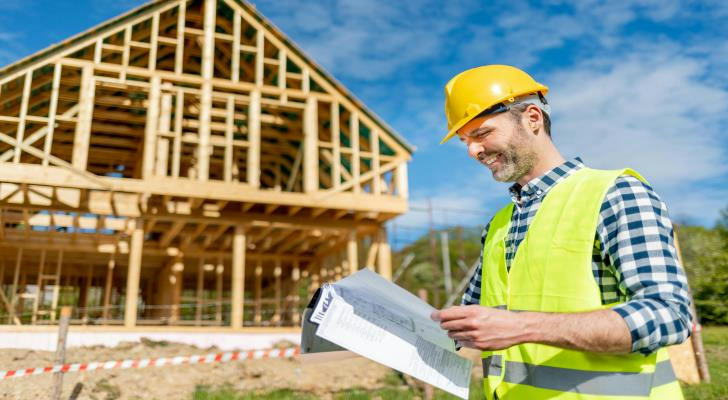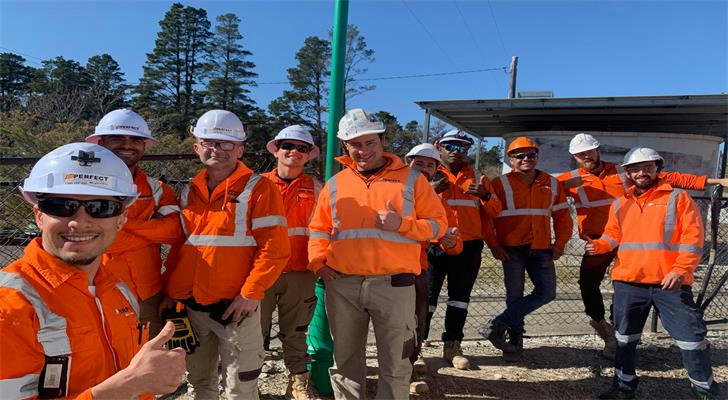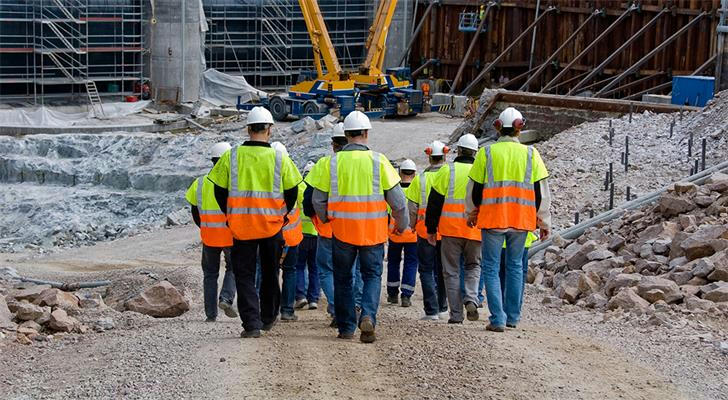What Skills Are Essential for Success as a Construction Worker?

The construction industry is a vital component of the economy, responsible for building infrastructure, homes, and commercial spaces. As the demand for skilled labor continues to rise, it’s crucial for construction workers to possess a diverse set of skills that ensure both personal success and project efficiency. This article explores the essential skills needed to thrive in this dynamic field and offers measures to improve those skills.
1. Physical Skills
Strength and Stamina
Construction work is inherently physically demanding. Workers often need to lift heavy materials, operate machinery, and endure long hours on their feet. Having the physical strength and stamina to handle these tasks is crucial. Regular exercise and maintaining overall fitness can help workers meet these demands.Measures to Improve:
Regular Exercise: Engage in strength training, cardiovascular workouts, and flexibility exercises to enhance physical fitness.
Nutrition: Maintain a balanced diet to support energy levels and muscle recovery.
Endurance Activities: Incorporate running, cycling, or swimming into your routine to build stamina.
Coordination and Dexterity
In addition to strength, construction workers must have excellent coordination and dexterity. Many tasks require fine motor skills—such as using hand tools or assembling components—where precision is key. Developing these skills through practice can significantly enhance a worker's effectiveness on the job.Measures to Improve:
Skill-Specific Training: Regularly practice using hand tools and machinery.
Fine Motor Skill Exercises: Engage in activities that require precision, such as woodworking or crafting.
2. Technical Skills
Building and Mechanical Knowledge
A solid understanding of various construction methods and materials is essential. Workers should be familiar with different types of construction processes, from framing to finishing, as well as the properties of materials like wood, concrete, and steel.Measures to Improve:
Formal Education: Enroll in construction technology programs or vocational training courses.
Hands-On Experience: Participate in internships or apprenticeships for practical knowledge.
Mathematical Proficiency
Basic math skills are indispensable in construction. Workers frequently need to perform calculations related to measurements, areas, and volumes. Proficiency in geometry is particularly important for tasks involving angles and layouts.Measures to Improve:
Math Courses: Take courses focused on construction mathematics through community colleges or online platforms.
Practice Problems: Regularly work on math problems related to measurements and geometry.
Reading Blueprints
Interpreting blueprints and project specifications is another critical skill for construction workers. Understanding these documents allows workers to visualize the completed project and follow instructions accurately.Measures to Improve:
Blueprint Reading Courses: Attend workshops or online classes that teach blueprint reading.
Practice with Real Plans: Obtain sample blueprints and practice interpreting them.

3. Problem-Solving Skills
Critical Thinking
Construction sites are dynamic environments where unexpected challenges can arise at any moment. Workers must possess strong critical thinking skills to quickly identify issues—such as material shortages or design flaws—and devise effective solutions.Measures to Improve:
Scenario-Based Training: Participate in training exercises that simulate real-world problems.
Reflective Practice: After projects, reflect on challenges faced and how they were resolved.
Decision-Making
In high-pressure situations, the ability to make informed decisions is vital. Construction workers often need to choose between multiple options quickly while considering safety, cost, and project timelines.Measures to Improve:
Role-Playing Exercises: Engage in role-playing scenarios requiring quick decision-making.
Learn from Experience: Analyze past projects for insights into decision-making processes.
4. Interpersonal Skills
Communication Skills
Clear communication is essential in the construction industry. Workers must effectively convey information to team members, supervisors, and clients through both verbal communication on-site and written documentation.Measures to Improve:
Communication Workshops: Attend workshops focused on effective communication techniques.
Practice Writing Reports: Regularly write project reports or documentation for practice.
Teamwork
Construction projects typically involve diverse teams working together toward a common goal. Strong teamwork skills foster collaboration and ensure that everyone contributes effectively to the project’s success.Measures to Improve:
Team-Building Activities: Participate in exercises that promote collaboration among team members.
Volunteer for Group Projects: Engage in community service or group projects outside of work.
5. Technological Proficiency
Familiarity with Construction Technology
As technology continues to evolve, so does its role in construction. Workers should be familiar with modern tools and equipment used for project management.Measures to Improve:
Training Programs: Attend workshops focusing on modern tools and software relevant to construction.
Hands-On Practice: Seek opportunities to use new technologies on job sites or through simulations.
Adaptability to New Technologies
The willingness to learn new technologies is equally important. As innovations emerge—such as Building Information Modeling (BIM) or drone surveying—workers who can adapt will remain competitive in the industry.Measures to Improve:
Stay Informed: Follow industry news sources discussing emerging technologies.
Continuous Learning: Enroll in courses covering new technologies as they become available.
6. Safety Awareness
Knowledge of Safety Protocols
Safety must always be a priority on construction sites. Workers should have a thorough understanding of safety regulations and best practices.Measures to Improve:
Safety Training Courses: Participate in OSHA training programs or other relevant safety certifications.
Regular Safety Meetings: Attend safety briefings held by employers actively discussing safety practices with colleagues.
Risk Assessment Skills
Being able to identify potential hazards before they become issues is vital for maintaining a safe work environment. Construction workers should be trained in risk assessment techniques that enable them to recognize unsafe conditions promptly.Measures to Improve:
Training Programs on Risk Assessment: Participate in workshops focusing on identifying hazards.
Mentorship Programs: Work with experienced professionals who can guide you in recognizing risks effectively.

A Real-Life Example: John's Journey to Construction Success
John, a high school graduate with a passion for building things, decided to pursue a career in construction. He enrolled in a vocational training program to acquire the necessary technical skills, such as blueprint reading, math, and construction methods. During his training, John excelled in practical exercises, demonstrating exceptional dexterity and coordination. He also showed a keen interest in learning about new technologies, such as using laser levels and 3D modeling software.
After completing his training, John landed a job as a construction worker on a large-scale residential project. Initially, he faced challenges with physical stamina and teamwork. However, he was determined to overcome these obstacles. He started a regular exercise routine to improve his strength and endurance and actively participated in team-building activities to foster stronger relationships with his colleagues.
One day, a complex construction issue arose on the project. John, using his critical thinking skills and knowledge of construction techniques, proposed a creative solution that saved both time and money. His supervisor was impressed by his problem-solving abilities and initiative.
Conclusion
Success in the construction industry hinges on a combination of physical prowess, technical knowledge, problem-solving abilities, interpersonal skills, organizational capabilities, technological proficiency, and safety awareness. Aspiring construction workers should focus on developing these essential skills not only to enhance their employability but also to contribute positively to their teams and projects. By investing time in skill development through education, hands-on experience, and continuous learning, individuals can build rewarding careers in this ever-evolving field.
